Children and lifejackets
All children should wear a lifejacket, when they are in any open area of a vessel. During an incident you may not have the opportunity to help children.
It should not be worn when a child is within a deck-house, cabin or secure enclosed space as it could stop them from making a safe exit.
A lifejacket must be securely zipped and clipped at all times to be effective. If not appropriately fitted, a child may slip out of the lifejacket when in the water, or may be forced into a dangerous face-down position when in the water.
From 1 January 2025, lifejackets must meet Australian Standard (AS) 4758. Lifejackets that meet older standards including AS 1512, AS 1499 and AS 2260 will no longer be acceptable in South Australia.
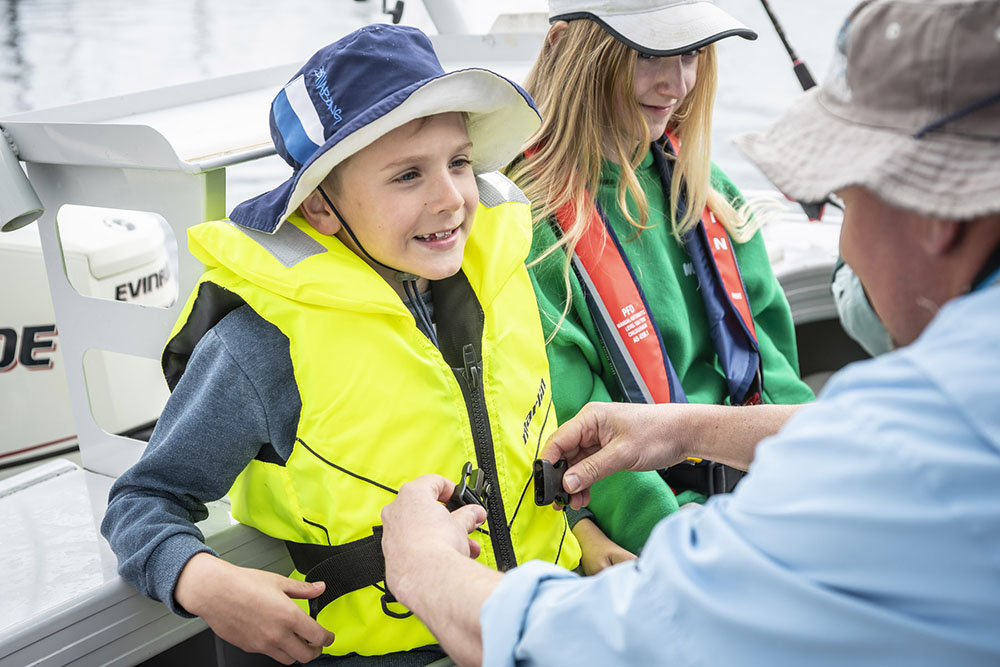
Choosing a child's lifejacket
- If you’re not sure which lifejacket level your child needs, answer some quick questions to know before you go.
- Do not compromise on quality.
- It should be appropriate for your child's weight, fit them securely and not move around in any way that may impair its performance.
- A crotch strap fitting will prevent the jacket from bunching up around the child's neck and will prevent your child falling out of the bottom.
- Choose a lifejacket level 100 or above that complies with the requirements for all waters and will support your child in a face-up position if in the water in calm water conditions.
- Children who are 12 years old or younger or who weigh less than 40 kg can now wear automatically inflatable lifejackets. These lifejackets are designed to inflate automatically when coming into contact with water. The lifejacket must:
- Be clearly labelled to inflate automatically.
- Have a pull cord (serves as a backup).
- Be serviced regularly in line with the manufacturer's instructions.
- Be the correct size and properly fitted.
- Remember that a lifejacket level 50 or 50S may not roll your child into a face-up position in calm water conditions should they be unconscious.
- Match the weight range of the lifejacket with the weight of your child.
- Check that the lifejacket complies with the appropriate standard for the type of lifejacket being used.
- Find out about the lifejacket wear requirements on boats up to 12 metres in length including circumstances of heightened risk.
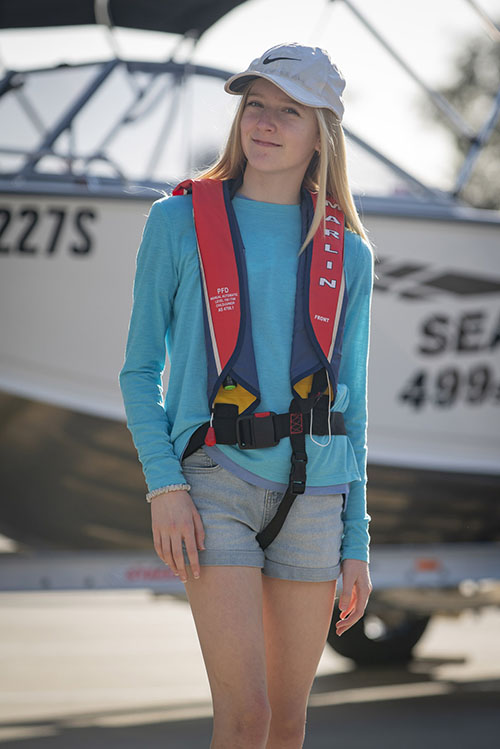
Example of an automatic inflatable lifejacket
Lifejacket wear examples
It is extremely important that a lifejacket is fitted correctly, as per the examples provided below.
This lifejacket is the correct size
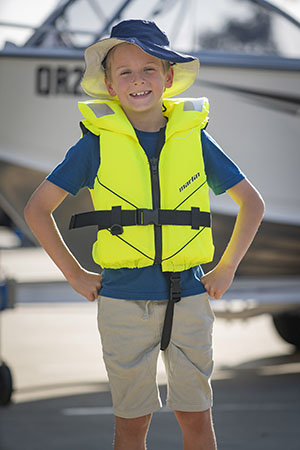
The weight rating of 22-40 kg is appropriate for the child's weight of 28 kg, and the size appears to be proportionate to the child's body size.
This lifejacket is too big
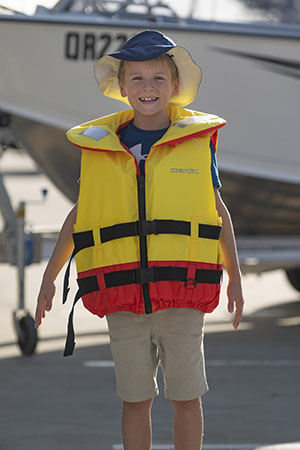
If a child fell into the water they would probably fall straight through the bottom of this lifejacket.
This lifejacket is too small
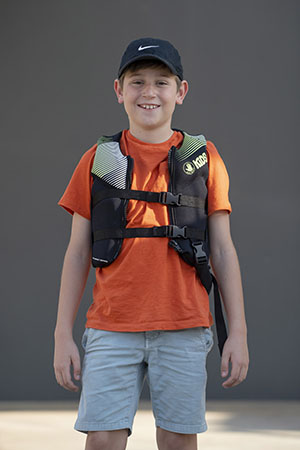
The child's weight may exceed the weight rating and if the child fell into the water it may not keep them afloat.


